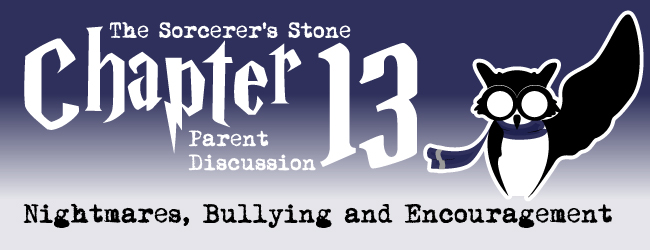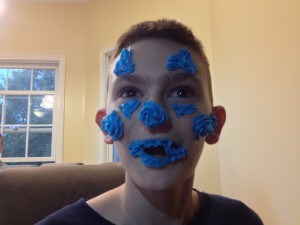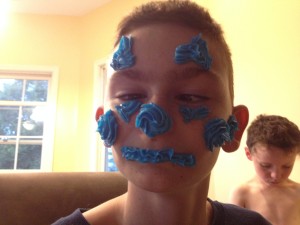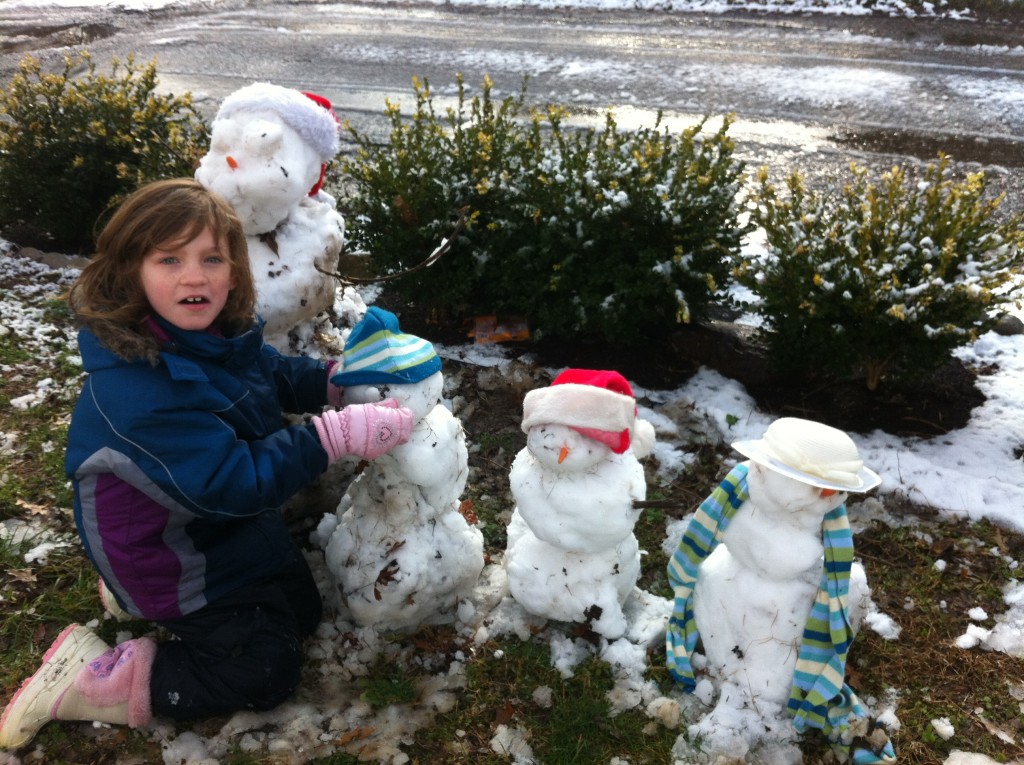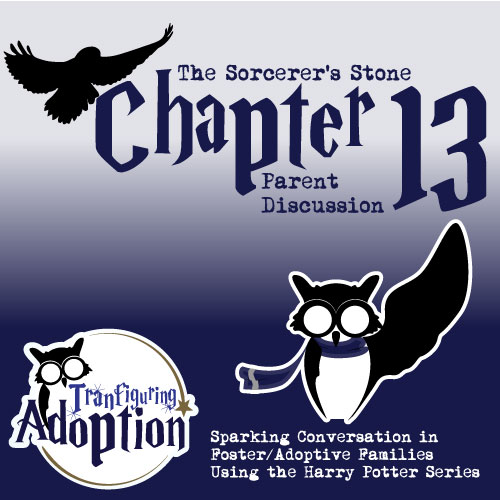I have two major themes I want to discuss about this chapter: 1) nightmares, night terrors and fear and 2) the effects of encouragement when it comes to being bullied.
Part I: Nightmares
The visions Harry saw of his parents in Chapter 12 in the Mirror of Erised have brought up feelings of *fear and memories from the trauma he experienced when his parents were murdered, and now at the beginning of Chapter 13, he’s having nightmares. Ron comments about how Dumbledore was right about the Mirror of Erised being capable of driving a person insane. However, most people would go insane over the longing of what they wanted to see in the future, but Harry is being terrorized now by his past. For years, his subconscious had no reason or ability to really recall what happened to him before he ended up at Privet Drive because he never knew what happened. Now, armed with the knowledge of his history and seeing his parents in the Mirror, their murder and the cackling of their murderer are haunting his sleep.
Night Terrors and Bad Dreams
We have certainly had our share of haunted sleep in our house. Our youngest, who had no language at the time, had horrible night terrors, and his sister had and still has awful nightmares. We always had to be very careful what we watched or listened to throughout the day, because anything was fair game for inducing bad dreams all night long followed by dark eyes and bad moods for everyone in the house! BUT…nightmares could be talked about. One therapist even had our child draw pictures of nightmares and then turn them into something silly.
“A child can be heard screaming in the middle of the night but cannot be comforted.”
Night terrors, on the other hand, just terrorize everyone. A child can be heard screaming in the middle of the night but cannot be comforted. The terrified child thrashes, emits blood-curdling screams, sweats, pants for breath, and has a pounding heart. While his eyes were open, he didn’t really see us. We were helpless.
Fear, Hypervigilance and Sleep
Our kids talked about things happening to them at night in the past. They were obviously afraid at bed time, not just of the nightmares or terrors that may come, but of who might come in while they were in bed. The fear was intense and led to hypervigilance (which can be a sign of PTSD–Post Traumatic Stress Disorder), a state of being aroused and constantly ‘on guard’ looking out for one’s own safety. This hypervigilance even led to kids doing whatever they could to stay awake.
“The fear was intense and led to hypervigilance…”
Early on in our adventures, when we had the younger two living with us and the older two doing visits in preparation to move in, we decided to go on a family vacation with all the kids and drive during the night while everyone slept. Oh, buddy, was that a mistake!! The two kiddos with hypervigilance did what they could (one slapping their face and the other screaming) to stimulate themselves to stay awake. We were pretty much going into convulsions by the time we got to our destination 6 hours away. We swore we were never going on a family vacation again (looking at our blog you’ll know things changed). It was not a good beginning to the trip!
If a child in your house has difficulty sleeping, remember not only does it affect them and their moods and you and your moods, but sleep deprivation causes many other difficulties, with memory problems being one of the worst. This of course affects learning. You would do well to speak with your pediatrician about children who are hypervigilant and have trouble going to sleep. Many children find success by taking melatonin, an over-the-counter natural sleep aid. It brought on huge improvements in our household for everyone.
“Even though we know that kids are safe, they don’t.”
Time, trust, and the children learning they are safe will ultimately result in much healthier sleep for everyone. Even though we know that kids are safe, they don’t. While the youngest is on a prescription to help him go to sleep (more because of ADHD than fear), I’m happy to report all the older children now take melatonin only occasionally, and they usually alert us to their need for it, meaning they have developed a self-awareness of the fact that they are for some reason going to have difficulty sleeping.
What have your experiences been?
- Has a child in your house ever experienced excessive night terrors or nightmares?
- What have you found helpful in getting children to sleep and in dealing with nightmares or night terrors?
- Click hear to read Chapter 4: Disarming the Fear Response with Felt Safety from The Connected Child by Drs Purvis and Cross to get ideas and insight into helping a child feel safe.
- Share with folks here in the comments!
*For more about fear and memories of trauma, see my Chapter 11 Parent’s blog.
Part II: Bullying and Encouragement
“You’re worth twelve of Malfoy.” This sentence, in two slightly varied forms, appears twice in Chapter 13. Harry uses it first when he’s speaking to Neville after he has been bullied by Draco Malfoy. This piece of encouragement evidently makes its mark on Neville because he repeats it as “I’m worth twelve of you, Malfoy,” the next time Draco teases him.
Neville we know was being raised by his grandmother. He seems clumsy and forgetful and struggles with his studies, and has become an easy target for Malfoy, who tells him he’s not brave enough to be in Gryffindor. He’s on the verge of crumbling emotionally, but Harry gives him chocolate (which incidentally is good for kids with emotional difficulties in small quantities) and encourages him by reminding him that the Sorting Hat chose him to be in Gryffindor. He also reminds Neville of what house Malfoy was sorted into: Slytherin. Neville walks a little taller after that and turns that phrase back on Draco the next time he becomes the target of Draco’s bullying.
“We all face people who don’t like us or aren’t nice to us throughout our lives, and as parents, we need to give our kids the skills to deal with it.”
Foster and adopted kids can at times find themselves the target of bullies or just plain old teasing. I often find myself doing whatever I can to help them not get picked on by making sure they look well cared for and coaching them on social skills, but what really arms them is us consistently reminding them that it doesn’t matter what others think because we love them and are proud of them no matter what…that at the end of the day they are special, talented, and loved. We all face people who don’t like us or aren’t nice to us throughout our lives, and as parents, we need to give our kids the skills to deal with it.
Now It’s Your Turn…
- Do the kids in your care ever become the target of a bully?
- What do you do to prepare your kids emotionally for people who may not be so nice to them?
Parents’ Discussions:
Ch. 01 | Ch. 02 | Ch. 03 | Ch. 04 | Ch. 05 | Ch. 06 | Ch. 07 | Ch. 08 | Ch. 09 | Ch. 10 | Ch. 11 | Ch. 12 | Ch. 13 | Ch. 14 | Ch. 15 | Ch. 16 | Ch. 17
Kids’ Discussions:
Ch. 01 | Ch. 02 | Ch. 03 | Ch. 04 | Ch. 05 | Ch. 06 | Ch. 07 | Ch. 08 | Ch. 09 | Ch. 10 | Ch. 11 | Ch. 12 | Ch. 13 | Ch. 14 | Ch. 15 | Ch. 16 | Ch. 17
